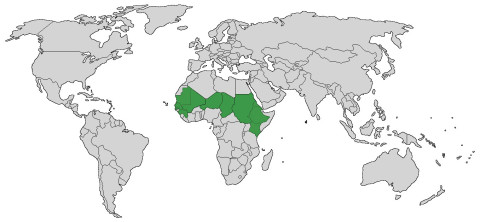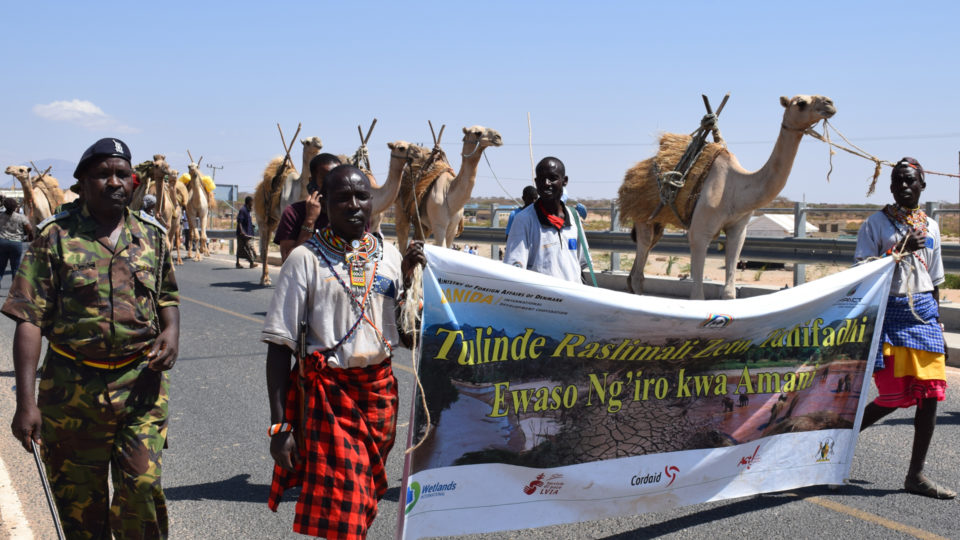How can people and nature survive at the edge of the Sahara Desert? For centuries wetlands in the arid Sahel region of Africa have provided lifelines for local people and wildlife. Yet these wetlands are shrinking. They are threatened by a changing climate, rapid population growth and increasing competition for water. We work to safeguard and restore these freshwater flows.
Where we work

The wetlands of the Sahel include rivers and their floodplains, seasonal lakes and ponds set amid arid and semi-arid landscapes. This freshwater provides food and fodder for farmers, fishers, and pastoralists. It also support seasonal patterns of migration for people and animals, including millions of waterbirds that breed in Europe.
Water is already very scarce in this region and likely to become scarcer. The need for food and energy production is driving upstream water withdrawals, often at the expense of the seasonal floods. This jeopardises downstream wetlands and the communities and nature that depend on them.
The area of floodplain wetlands in the Sahel is shrinking. To halt and reverse this trend we improve the understanding of their values and build the capacity of governments, civil society organisations and local communities to take action to develop sustainably and adapt to a changing climate. Our ambition is to increase the reach of our current work across the Sahel from coast to coast.
Along the Ewaso Nyiro River in Kenya, In the Karamoja Region of Uganda and in the Somali Region of Ethiopia, we work with our partners Red Cross, CARE and CORDAID to strengthen the livelihoods and water provision of pastoral and agro-pastoral communities in a changing climate. We do this through ecosystem management and restoration (EMR) approaches that restore degraded ecosystems, create sustainable agricultural practices and improve management of water and natural resources . Through this project, communities and other stakeholders that were vulnerable, are more resilient to climate (change) induced hazards. NGOs/CBOs are also better able to apply the integrated approach (Disaster Risk Reduction /Climate Change Adaptation/ EMR) in assistance as well as contribute to a stronger voice for civil society. Their engagement in policy dialogue solicited endorsement of the PfR approach by government institutions
In Kenya and Uganda, we are contributing to sustainable water, sanitation and hygiene (WASH) by focusing on improvements in integrated water resources management and governance, through strengthening civil society capacity in lobby and advocacy and engaging a broad range of stakeholders.

